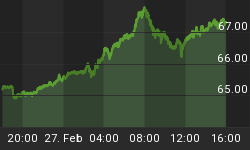In the election run-up, Donald Trump both praised and criticized higher interest rates, multiple times each way.
So what the heck does Trump want?
The only thing we are reasonably sure of is Trump prefers businessmen and women running the country instead of academics.
Conflicting Views
- Nov. 3, 2015:  "Janet Yellen should have raised the rates. She's not doing it because the Obama administration and the president doesn't want her to."
- May 5, 2016 to CNBC: Â "I am a low interest-rate person. If we raise interest rates and if the dollar starts getting too strong, we're going to have some very major problems.
- May 9, 2016: To The Wall Street Journal:Â "If interest rates went up, our economy is not doing well at all. And it's going to hurt the economy very badly. If interest rates went up, it would be a disaster."
- Sept. 5, 2016: Asked about a potential rate increase in September, Mr. Trump said: "They're keeping the rates down so that everything else doesn't go down. We have a very false economy.  "At some point the rates are going to have to change. The only thing that is strong is the artificial stock market."
- Sept. 12, 2016: "The people that were hurt the worst (by low rates) are people that saved their money all their lives and thought they would live off their interests and those people are getting just absolutely creamed.... The interest rates are kept down by President Obama."Â "It's a tremendous problem for the country and we are talking about rates that are practically at zero.
Is that clear or what?
I am open to suggestions, but I believe the average person just might side with "or what?"
The Trump Fed

From the above statements, one would have to be a mind-reader or an insider to know what Trump wants.
His statements are so conflicting, I propose Trump does not know himself what he wants.
Academics Out?
Yet, President Trump Will Be Able to Recast the Fed by Filling Vacancies. So speculation as to what will the "Trump Fed" look like is on.
President Donald Trump will be able to recast the Federal Reserve by filling three or more vacancies on its seven-member board of governors and is leaning toward candidates with banking and financial world experience rather than academic economists.
So far, his team is prioritizing the search for candidates to fill the role of vice chairman for supervision and a seat for someone with a community banking background, as required by law. His team has interviewed several candidates, including financial executives with experience in government, according to people familiar with the matter.
David Nason, an executive at General Electric's financing arm and former Treasury Department official during the 2008 financial crisis, emerged as a leading candidate in recent weeks to be the vice chairman for supervision, though Mr. Trump's team has also interviewed other candidates, the people said. The position was created by the 2010 Dodd-Frank law, but the Obama administration never named anyone to fill it.
Other potential candidates the administration has considered include former ATT Corp. Chief Executive John Allison, and Rep. French Hill (R., Ark.), a former banker just re-elected to his second House term, these people said. Mr. Hill said in a recent radio interview he hasn't had any conversations with the Trump administration.
A White House spokeswoman declined to comment.
Such choices would mark a departure from the trend of recent decades, when most Fed officials were economists, many with extensive experience in academia or the central bank. It could usher in a return to the Fed's earliest years, when bankers, lawyers, and other businesspeople had a much larger presence.
Mr. Trump has so far relied primarily on business and financial executives to help shape his economic policy, rather than economists. He hasn't appointed anyone to the White House Council of Economic Advisers, which is typically filled by academic economists, and his top economic adviser, National Economic Council Director Gary Cohn, was a top executive at Goldman Sachs Corp.
If Mr. Trump doesn't renominate Ms. Yellen and Mr. Fischer to their current positions, they wouldn't have to leave the board. Ms. Yellen's term as governor expires in January 2024, and she hasn't ruled out staying in that seat beyond her term at the helm. Mr. Fischer's term as governor expires in January 2020, and he hasn't commented publicly on his future at the Fed.
The last time a Fed chairman stayed on the board after losing the top job was during the Truman administration.
Good Riddance
Getting rid of academics like Ben Bernanke and Janet Yellen is a step in the right direction, but only a small one.
Trump needs to audit the Fed, then end it.
The idea that a group of economic or business wizards can divine the correct interest rate is central planning madness.
If one proposed the Fed should set the price of orange juice, nearly the entire world would be in shock. Yet, I propose it's harder to set interest rates correctly.
The results speak for themselves: We have had asset bubble after asset bubble coupled with a shrinking middle class.















